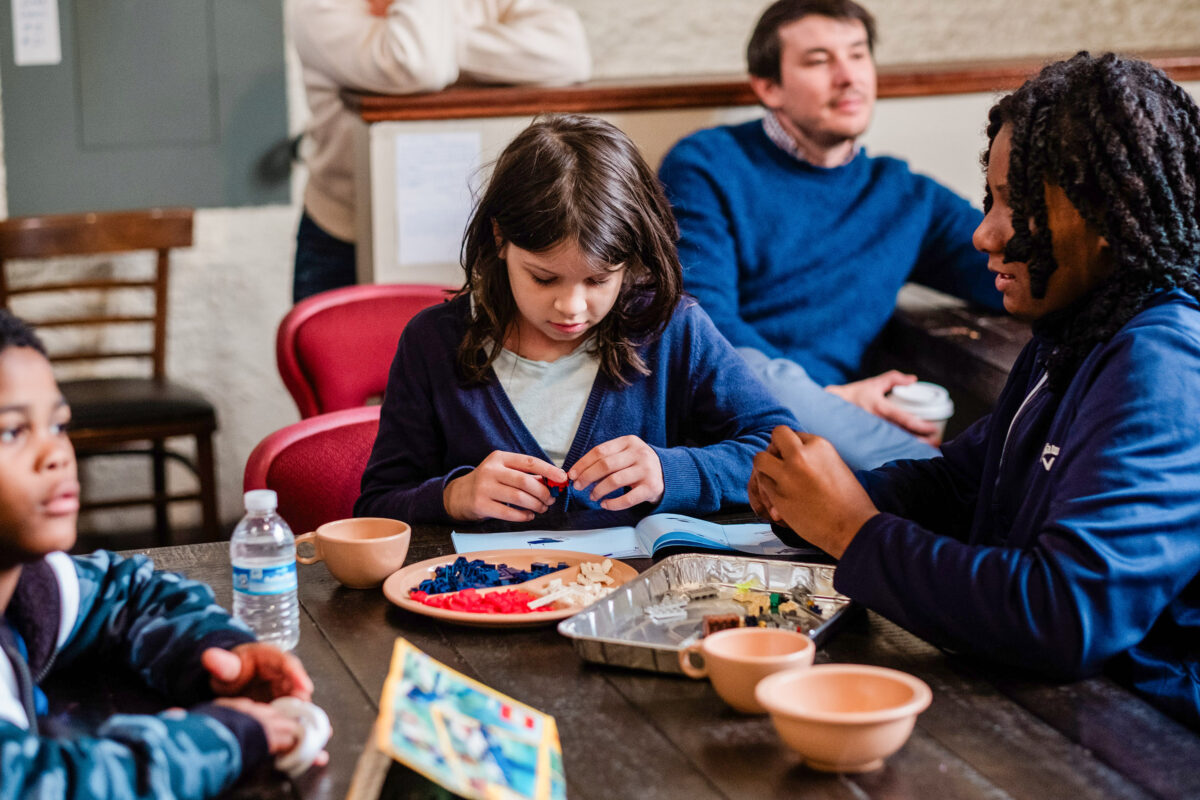Project Baseplate is a new partnership between Carnegie Mellon University’s Center for Transformational Play and UK organization Play Included. It aims to launch a nationwide program that blends fun with educational development using Lego bricks.
The Center for Transformational Play, established two years ago with the goal of studying games and their impact on society, was a natural partner for the program, said Jessica Hammer, the center’s director.
“One of the things that really drew us to wanting to work with Play Included was actually the studies that they’ve done,” Hammer told Technical.ly. “Not just claiming that their Brick-by-Brick program has an impact, but actually doing really high-quality research and demonstrating it in a way that allows other people to build on their successes.”
The initiative will focus on two main fronts: Creating Brick-by-Brick clubs and conducting a detailed study to explore how these clubs can help children connect across different economic backgrounds and improve their social and emotional abilities through playing.
Play Included published a 2023 study that found neurodivergent children’s social skills improved after participating in therapy using bricks. Founded in 2018 as Bricks for Autism, the organization recently rebranded to reflect the realization that its research and program can help all children.
Extensive research supports the notion that playing with Lego bricks can significantly benefit children’s development. With numerous brick clubs operational across the US, this new program seeks to enrich the existing landscape.

Pittsburgh already boasts 16 brick clubs, with plans to initiate 20 more. Sites will include K-12 elementary schools and nonprofits such as the Children’s Museum and Dragon’s Den, according to Hammer. These clubs are designed not just for skill development, but also as a way for children from diverse backgrounds to connect across socioeconomic barriers.
“We’ve been thinking about how if we put brick clubs in community institutions that draw kids from across the city [and] how those experiences help kids make friends with kids they would not encounter in other contexts,” Hammer explained.
A “child-led” strategy will underscore Project Baseplate, emphasizing respect for children’s needs and desires while fostering leadership and self-expression.
“‘Child-led’ does not mean putting children in charge of clubs. But it does mean taking children’s needs and desires seriously, giving them opportunities to be leaders, among other children,” Hammer said. “And giving kids chances to express themselves — make decisions that matter! — [with] the adults sort of following and supporting the children.”
The program’s success is underpinned by the support of the Benedum Foundation, the Grable Foundation, and David L. and Noelle C. Conover of Matt’s Maker Space. Ultimately, its goal is to use something children have already enjoyed for years to improve their futures.
“What we’d like to see is more people having more play and more pleasure in their lives,” Hammer said, “as they build the skills that help them get what they want.”







